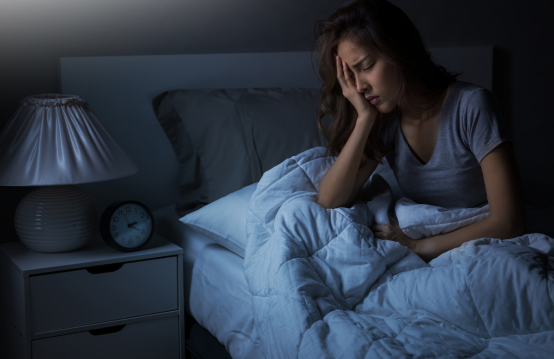

Struggling with insomnia can be frustrating and stressful. Although prescription medications are available, many people prefer natural remedies to improve sleep. In this article, we review various natural remedies for insomnia and explore their effectiveness, pros, and cons to help you make an informed decision.
Struggling with insomnia can be frustrating and stressful. Although prescription medications are available, many people prefer natural remedies to improve sleep. In this article, we review various natural remedies for insomnia and explore their effectiveness, pros, and cons to help you make an informed decision.

Here's How It Works
Melatonin is a hormone that regulates the sleep-wake cycle. Melatonin supplements can signal your body that it's time to go to sleep, making it easier for you to fall asleep.
Melatonin supplements are generally effective for short-term sleep problems and have fewer side effects than other sleep medications. However, dosage requirements can vary, so consulting a doctor is recommended.
Valerian root is an herb that is believed to increase the amount of a neurotransmitter called GABA in the brain, which has a calming effect.
Valerian root may be beneficial for some people, but the scientific evidence varies. It is generally safe for short-term use, but it may not be suitable for everyone.
Mode of Action
Lavender essential oil is commonly used in aromatherapy and is said to have calming and sedative effects.
Pros
Cons
Overview
Lavender is a popular natural sleep aid due to its calming effects. Although it works for many people, its effectiveness can vary and it may cause allergies in some people.
Natural Remedies for Insomnia: What Works and What Doesn't
Mode of Action
Magnesium is a mineral that plays a key role in sleep regulation by activating neurotransmitters that calm the nervous system.
Pros
Cons
Generalization
Magnesium generally improves sleep quality and has additional health benefits. However, high doses can cause digestive issues.
Mode of Action
Chamomile contains antioxidants that bind to specific receptors in the brain, promoting sleepiness and reducing insomnia.
Pros
Cons
Summary
Chamomile is a gentle and generally safe treatment for mild to moderate insomnia. Its effectiveness may be limited if you have severe sleep problems.
How it works
CBT-I involves structured sessions to help you change thoughts and behaviors that affect your sleep.
Pros
Cons
Summary
CBT-I is highly effective for treating chronic insomnia and can provide long-term benefits. However, it takes time and professional guidance.
Remedies have mixed results
How it works
Acupuncture involves inserting fine needles into specific points on the body to restore balance and promote relaxation.
Pros
Cons
Summary
Acupuncture may be beneficial for some people, but scientific evidence varies. It is a non-drug option that requires professional treatment.
How it works
Aromatherapy involves inhaling essential oils or applying them to the skin to promote relaxation and improve sleep.
Pros
Cons
Summary
Aromatherapy is a non-invasive and easy-to-use tool to promote relaxation and improve sleep. Their effectiveness varies, and potential allergies should be considered.
How it works
Practices such as mindfulness meditation and guided imagery can help reduce stress and promote relaxation.
Pros
Cons
General
Meditation and mindfulness can be effective in reducing stress and improving sleep quality. They require practice and may not be suitable for everyone.